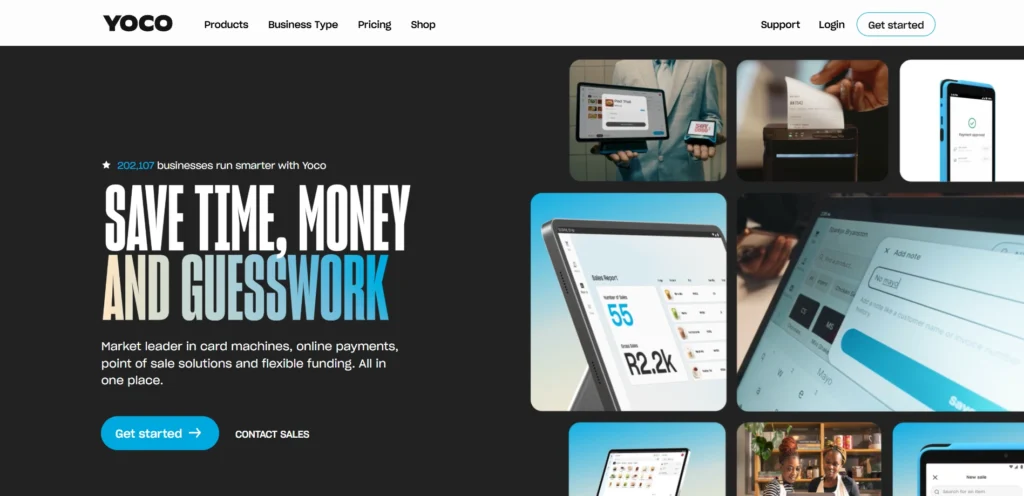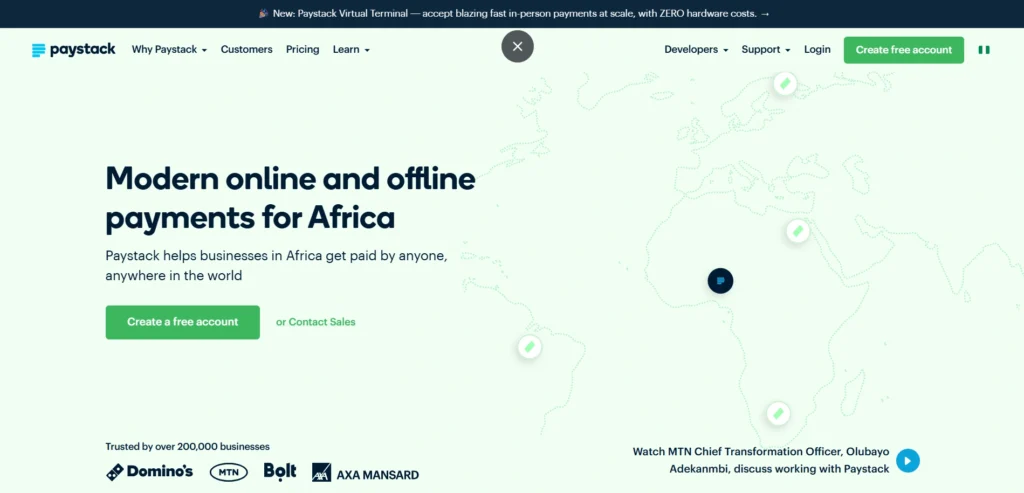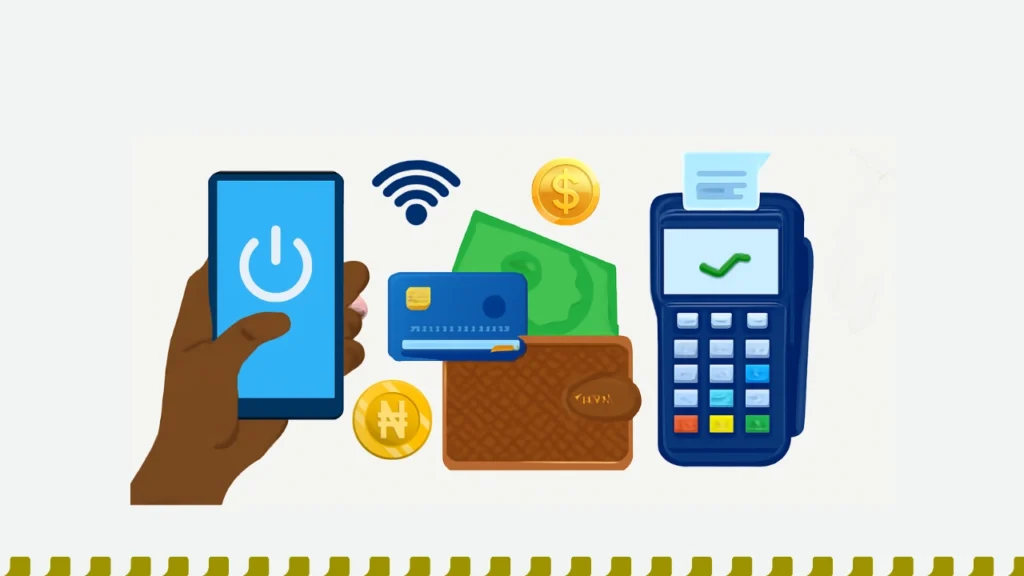In today’s digital age, the concept of cashless businesses is rapidly transforming how commerce is conducted. With the rise of mobile wallets, digital payments, and fintech innovations, going cashless is no longer just a global trend; it is becoming a necessity for businesses across Africa. From improving the speed of transactions to offering greater security, there are undeniable advantages to embracing a cashless business model.
As we look toward 2026, the cashless movement in Africa is gaining momentum. In this article, we will see the benefits of going cashless for African businesses, give you real-life examples from across the continent, and discuss how the future of cashless businesses in Africa will unfold.
What is a Cashless Business?
A cashless business is simply a model where physical currency is not used for transactions. Instead, businesses rely on digital payments, such as credit/debit cards, mobile money, bank transfers, or cryptocurrencies to process customer payments.
In many African countries, mobile money systems like M-Pesa in Kenya, MTN Mobile Money in Uganda, and Airtel Money across several countries are leading the charge in replacing traditional cash transactions. These systems are now essential for daily transactions, and businesses are increasingly adopting them to cater to the tech-savvy and mobile-first customer base.
The key advantage of going cashless is the convenience and security it brings to businesses and customers alike. Without the need for physical cash, transactions are quicker, and there’s less risk of theft or loss. This is especially crucial in African nations where handling large amounts of cash can be both cumbersome and risky.
Why the World is Going Cashless
1. Consumer Convenience and Expectations
Consumer expectations are shifting toward digital-first solutions. The convenience of making instant payments with mobile phones or contactless cards is driving the demand for cashless options. In Kenya, M-Pesa has revolutionized the way people send and receive money, making digital payments an essential part of daily life. Consumers now expect businesses to offer cashless payment systems as a standard option.
As more African consumers adopt smartphones, the demand for mobile payment solutions has increased significantly. According to the GSMA’s 2024 report, mobile money services in Sub-Saharan Africa continue to lead globally, with over 763 million registered accounts by the end of 2023. The region’s average annual account adoption growth rate stands at 13.6%, slightly below the global average of 19.8%.
2. The Rise of Digital Payment Solutions
The growth of mobile wallets and banking apps in Africa is a key driver of the shift toward cashless businesses. Countries like Nigeria, South Africa, and Ghana are increasingly relying on mobile payment platforms to facilitate daily transactions. According to the World Bank’s Global Findex 2025 report, mobile phone ownership in Sub-Saharan Africa has reached 86% of adults, with 40% of adults in the region holding a mobile money account. This widespread mobile access has significantly contributed to the rise of digital financial services, making mobile banking a prevalent method for financial transactions.
In addition, payment solutions like Flutterwave, Paystack, and Yoco have played a critical role in promoting digital payments for businesses in Africa. These platforms allow African businesses to easily accept payments online, making it easier for consumers to buy goods and services using their smartphones.
3. Global Trends Toward Cashless Societies
Globally, cashless societies are gaining traction. In Sweden, over 80% of all payments are digital, and a similar trend is unfolding across parts of Africa. Kenya, for example, is a leading African nation in digital payment adoption, with M-Pesa processing millions of transactions daily. Africa’s fast-growing digital economy is driving the move towards a cashless society, with mobile payments becoming the backbone of commerce in many African nations.
The Benefits of Going Cashless for African Businesses
Going cashless is not just about keeping up with trends; it offers substantial advantages for businesses in Africa. Let’s explore some of the key benefits of adopting a cashless business model in the African context.
1. Faster Transactions and More Efficient Operations
Cashless transactions are faster than cash-based payments. With mobile payment platforms like M-Pesa, Airtel Money, and QR codes, African businesses can process payments instantly. This reduces the time spent on counting cash, giving change, and handling customer disputes over incorrect change.
The MTN Group reported that mobile money services in countries like Uganda and Nigeria have significantly improved the speed of transactions, reducing customer wait times and improving overall satisfaction. In turn, businesses benefit from more efficient operations and faster service, leading to higher sales volumes and improved customer loyalty.
2. Enhanced Security and Reduced Risk of Theft
Handling cash presents a security risk, especially in regions with high crime rates or when dealing with large amounts of money. By adopting cashless payment systems, African businesses can mitigate the risk of theft and fraud. Digital transactions are traceable, and payments can be tracked in real time.
In countries like South Africa, mobile payment solutions have proven to be safer for both businesses and customers, significantly reducing incidents of cash-related crimes. For example, Yoco, a South African mobile payments platform, ensures that payments are processed securely, making it harder for fraudsters to intercept or steal funds.
3. Better Cash Flow Management and Accounting
For businesses in Africa, managing cash flow can be complex, especially with unpredictable cash handling and frequent trips to the bank. Going cashless simplifies this process. Payments are automatically processed through bank accounts or payment processors, reducing the need for manual interventions.
A 2025 KPMG report indicates that 93% of financial institutions and 87% of retailers in Africa are either currently modernizing their payments infrastructure or planning to do so within the next six to eight months. The primary motivations for this modernization include changing customer expectations, regulatory requirements, and the need to update legacy systems.
Financial institutions anticipate long-term cost savings, while retailers expect improved customer experiences as the top benefits of payment modernization. With a clearer view of their financial transactions, businesses can better manage their resources, plan for the future, and stay on top of taxes.
4. Increased Customer Satisfaction and Convenience
Customers across Africa have embraced mobile payments for their convenience and speed. By offering cashless payment options, businesses can meet the expectations of tech-savvy customers who prefer paying via mobile wallets or credit cards.
For instance, Jumia, one of Africa’s largest e-commerce platforms, has seen significant growth by offering cashless payment solutions, such as JumiaPay. Customers are more likely to return to businesses that provide a seamless, cashless experience.
Real-Life Examples of Cashless Businesses in Africa
Across Africa, many businesses are leading the way in adopting cashless transactions. Let’s look at some notable examples:
1. M-Pesa in Kenya

M-Pesa has revolutionized the mobile money landscape in Kenya, allowing users to send, receive, and store money directly through their mobile phones. Many small and medium enterprises (SMEs) in Kenya have adopted M-Pesa to collect payments, making it easier for businesses to reach customers in urban and rural areas alike.
According to Safaricom, the company behind M-Pesa, over 30 million people in Kenya use mobile money services, and more than 100,000 businesses accept M-Pesa as a payment method. This has made Kenya one of the leading countries in Africa for cashless transactions.
2. Yoco in South Africa

Yoco is a mobile payment solution that enables small businesses in South Africa to accept card payments using a smartphone or tablet. With Yoco, businesses can avoid the costs of traditional point-of-sale systems while still accepting card payments.
Since its launch, Yoco has empowered over 150,000 merchants, ranging from cafés to tech startups, to go cashless. The platform has helped small businesses grow by making it easier for them to accept payments and manage their finances digitally.
3. Paystack in Nigeria

Paystack, one of Nigeria’s leading payment platforms, enables businesses to accept online and mobile payments seamlessly. In 2020, Paystack was acquired by Stripe, a global leader in online payments, which further solidified Nigeria’s place in the cashless payments revolution.
Businesses in Nigeria, from retailers to freelancers, are using Paystack to accept payments digitally, improving cash flow management and reaching more customers. This is particularly important for e-commerce businesses in Nigeria, where cash transactions are less common and mobile payments are widely adopted.
The Future of Cashless Businesses in Africa
The future of cashless businesses in Africa looks promising. Here’s how the next few years might unfold:
1. The Rise of Cryptocurrencies
Cryptocurrencies like Bitcoin and Ethereum are beginning to make waves in Africa. Countries such as Nigeria and South Africa are exploring how cryptocurrencies can be integrated into their financial systems.
In Nigeria, for example, cryptocurrency adoption has been growing rapidly, with platforms like Bitget offering users the ability to buy, sell, and store digital currencies. As more businesses adopt cryptocurrency as a form of payment, it could create new opportunities for African entrepreneurs to enter the global digital economy.
2. Biometric Payments
With advancements in biometric technology, future cashless systems may allow customers to make payments using their fingerprint or facial recognition. This technology is already being tested in some parts of Africa, with Mastercard working on biometric payment systems in South Africa.
3. AI and Automation in Payments
Artificial Intelligence (AI) and machine learning will play a critical role in streamlining cashless payments. AI-powered systems will help businesses analyze payment trends, detect fraud, and offer personalized customer experiences. These innovations will make digital transactions more secure, faster, and smarter.
Conclusion
The cashless business model is no longer a choice; it’s the future, especially for African businesses looking to stay competitive in a rapidly evolving digital economy. The benefits of going cashless are clear: faster transactions, enhanced security, better cash flow management, and happier customers.
From mobile payment platforms like M-Pesa and Yoco to the growing adoption of cryptocurrencies and biometric payments, Africa is poised to become a leader in the cashless revolution. For businesses looking to thrive in this new era, embracing cashless payments isn’t just an option; it’s a necessity.




